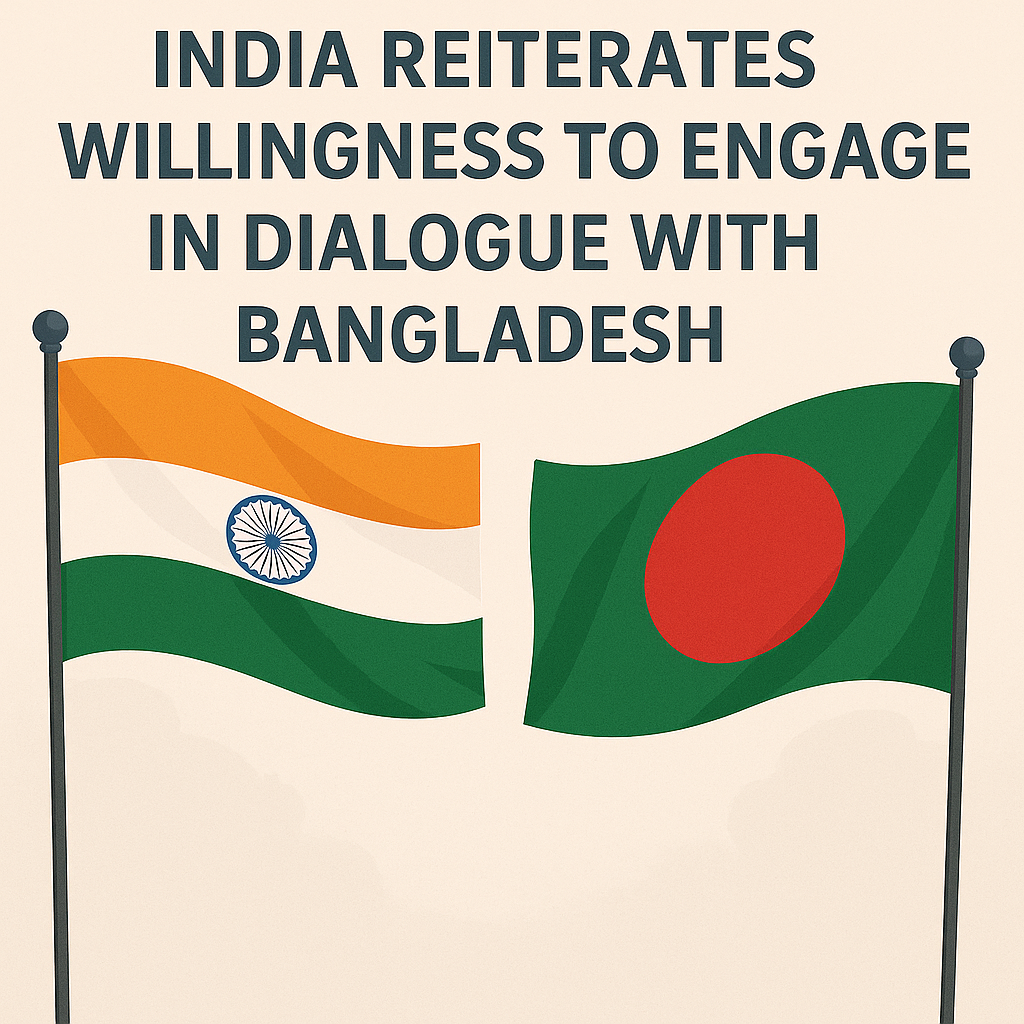India has reiterated its willingness to engage in comprehensive dialogue with Bangladesh, provided the environment remains conducive to mutual understanding and cooperation. The statement was made by Randhir Jaiswal, official spokesperson of India’s Ministry of External Affairs (MEA), ahead of a key parliamentary discussion on the evolving India-Bangladesh relationship.
“We are prepared to engage with Bangladesh on all matters in an environment that is conducive for mutually beneficial dialogue,” said Jaiswal at a press briefing on Friday. He underlined that well-established diplomatic mechanisms exist between Dhaka and New Delhi to manage a wide range of bilateral issues.
The remarks come as the Indian Parliament’s Standing Committee on External Affairs prepares to host a special session on the “Future of the India-Bangladesh Relationship.” Four senior experts—former National Security Advisor Shiv Shankar Menon, retired Lieutenant-General Syed Ata Hasnain, former Indian High Commissioner to Bangladesh Riva Ganguly Das, and JNU professor Amitabh Mattoo—are scheduled to brief the panel.
According to sources in the parliamentary secretariat and documents reviewed by Indian popular newspaper The Hindu, the committee is expected to focus on several sensitive topics, including the shifting political dynamics under Bangladesh’s interim government led by Nobel laureate Muhammad Yunus. Other topics include the rise of religious extremism in certain border districts, cross-border insurgency concerns, and the implications of Bangladesh’s increasingly close ties with China following the departure of former Prime Minister Sheikh Hasina in August 2024.
India’s concern is heightened by recent developments, including Bangladesh’s participation in a China-Pakistan-Bangladesh trilateral consultation held in Beijing on June 19. When asked about Dhaka’s presence in that forum, Jaiswal said, “India maintains a constant watch on the developments in our neighbourhood that have a bearing on our interests and our security. Our relations with individual countries, while they stand on their own footing, take into account the evolving context as well.”
The MEA’s calibrated response suggests a careful balancing act. On one hand, New Delhi wants to maintain historical and cultural ties with Dhaka, while on the other, it is increasingly wary of China’s growing footprint in the Bay of Bengal region. Bangladesh’s decision to send an observer-level delegation to the Beijing consultation—ostensibly focused on regional economic connectivity—has been read in Indian security circles as a signal of strategic realignment.
Another key issue under discussion is the impending renewal of the 1996 Ganga Water Sharing Treaty, which expires in 2026. Jaiswal confirmed that discussions on this front remain open. “We are ready to discuss the water-sharing arrangement under the existing bilateral frameworks,” he said.
Observers say the parliamentary session marks a significant moment in India’s foreign policy recalibration. The focus on Bangladesh—traditionally one of India’s most reliable neighbours—reflects unease in New Delhi about growing instability in the region and its long-term implications for India’s eastern security architecture.
As both nations navigate this delicate phase, the outcome of upcoming dialogues and the evolving political situation in Dhaka will likely determine whether the bilateral relationship stays on course or enters a phase of strategic drift.


